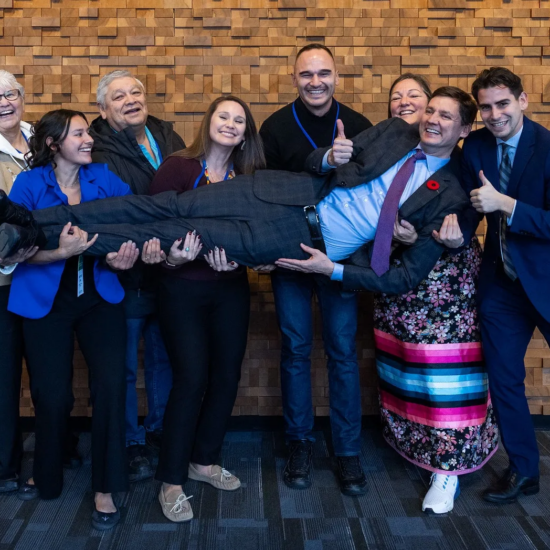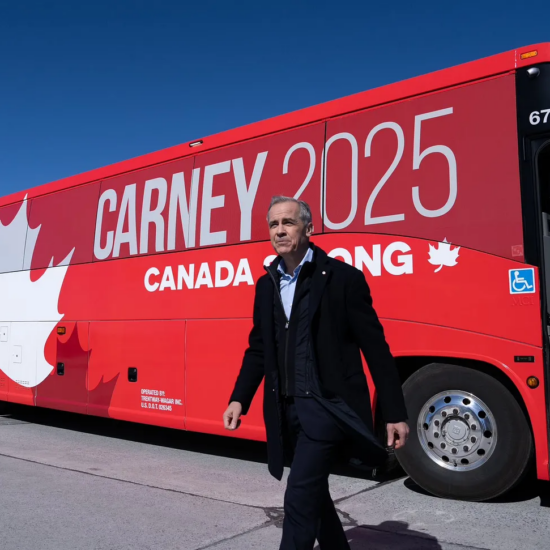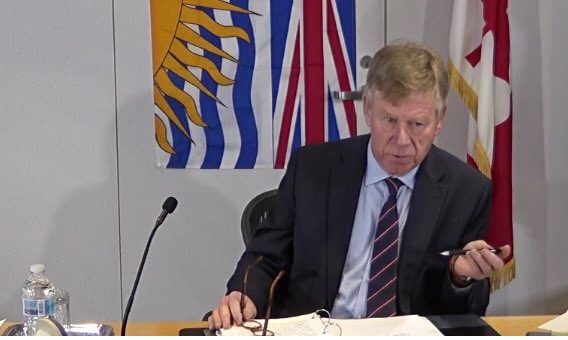
Bob Mackin
When the Cullen Commission began its first public hearing on Feb. 24, a lawyer for the federal government boasted that 13 federal departments and agencies are working to battle money laundering across the country.
But Judith Hoffman was rather vague when it came to quantifying their success. Or lack thereof.
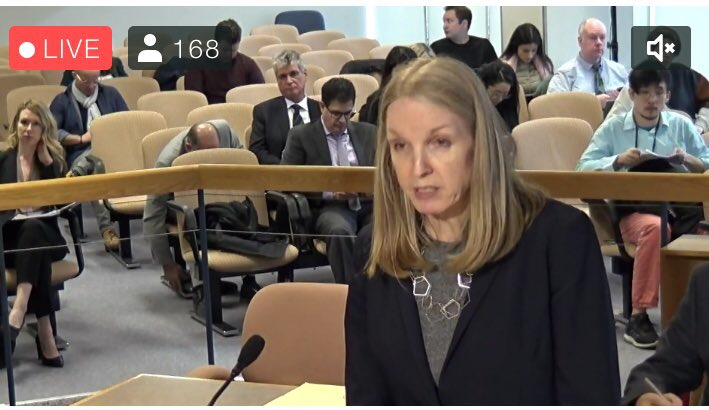
Government of Canada lawyer Judith Hoffman at the Cullen Commission on Feb. 24 (Cullen Commission)
She was among several lawyers delivering opening statements before Justice Austin Cullen at Federal Court in Vancouver. The $11 million public inquiry will hear opening submissions from participants through at least Feb. 26 before reconvening in late May for five weeks of subject-matter hearings.
The main event begins after Labour Day, with testimony and cross-examination of witnesses until almost Christmas. A preliminary report is due to government in November. A final report is due May 2021.
Hoffman detailed the RCMP’s efforts, including its involvement in the anti-gang Combined Forces Special Enforcement Unit B.C., where the provincially funded Joint Illegal Gaming Investigation Team (JIGIT) resides. She said CFSEU has executed “many search warrants” on illegal gambling houses that led to charges, convictions and seizures of property. But she did not say how many.
She did say there had been one deportation and $700,000 of illicit cash and goods wrestled away in civil forfeiture proceedings.
Hoffman did not mention the collapsed E-Pirate money laundering case in Richmond or that Russell Lim had been busted twice for running illegal gambling houses, one in East Vancouver and another in a Shaughnessy mansion. Lim was jailed for one day, plus 18 months probation.
The deportation? That was after the May 2018 arrest at the River Rock casino hotel of visiting high roller Dan Bui Shun Jin. Jin is suspected of laundering $855 million in Australian casinos.
JIGIT formed in 2016, more than seven years after the BC Liberal government disbanded a similar organization after it raised the alarm about Asian organized crime figures infiltrating B.C. casinos. The NDP government says that cost-cutting measure opened the door to billions of dollars of dirty money that distorted B.C.’s casino and real estate industries and led to a flood of illicit opioids and the deaths of 5,000 people since 2016.
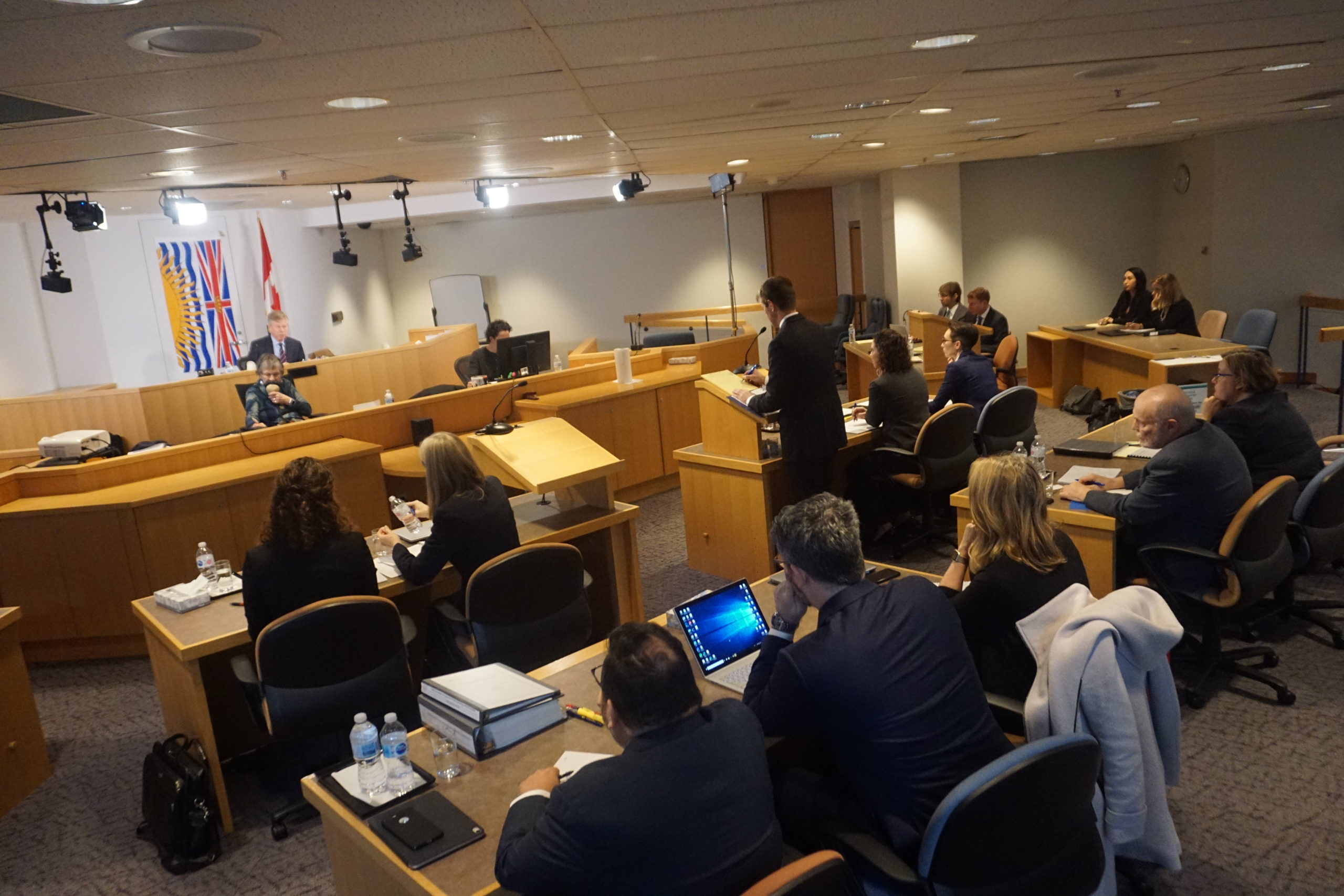
Commission counsel Brock Martland opens the Cullen Commission public hearing into money laundering Feb. 24 in Vancouver, before Justice Austin Cullen (Mackin)
Hoffman said JIGIT money laundering and loan sharking investigations have targeted “top tier organized criminal exploitation of casinos and banks” and also targeted individuals oerating money service businesses that are not compliant with federal reporting obligations.
Federal, provincial and municipal authorities are involved in monthly conference calls to coordinate efforts, she said. The loosely regulated money service businesses, such as currency exchanges, are receiving extra attention. In March 2019, JIGIT networked with a Quebec agency and engaged with the provincial government to take steps toward licensing of money service businesses. The collaboration evolved into a formal working group with reps from CFSEU, B.C.’s finance ministry and attorney general department, B.C. Police Services, Richmond city council and Quebec’s Autorité des marchés financiers.
She also described trade-based money laundering, from human trafficking to tobacco and firearms smuggling, which prompted Cullen to comment.
“There is a suggestion that trade-based money laundering is a particularly significant area of money laundering in recent years and it may be that that’s an area the commission will want to inquire into,” Cullen said.
The federal response to money laundering in B.C. has previously underwhelmed Attorney General David Eby, who criticized the Fintrac monitoring agency as ineffective and the RCMP as understaffed. Last fall, Eby was unhappy with the glacial pace of new funding that had been promised in the 2019 federal budget. Hoffman said $70 million a year is spent on anti-money laundering and another $178 million is coming over the next five years.
The public inquiry was struck last May by Premier John Horgan after reports showed $7.4 billion was laundered in 2018 in B.C., including $5 million in real estate. China is a major source of the dirty money.
Meanwhile, B.C. government lawyer Jacqueline Hughes. told Cullen that the government has re-established a deputy minister’s committee on anti-money laundering with mandarins from Finance, Solicitor General and Attorney General.
Cullen added a dose of skepticism when he asked whether the province has attempted to analyze whether different, non-money laundering economic forces pumped-up real estate prices.
Support theBreaker.news for as low as $2 a month on Patreon. Find out how. Click here.






